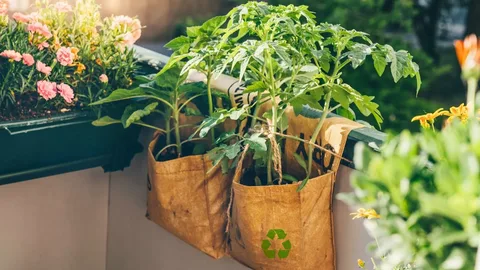Water conservation is another priority. Traditional sprinklers often waste water, but drip irrigation systems deliver it directly to roots with minimal loss. Collecting rainwater in barrels and designing rain gardens to absorb runoff further reduce strain on municipal systems. Choosing drought-tolerant plants adapted to local climates ensures gardens remain vibrant with less water.
Advertisement
Energy use also plays a role. Lawns maintained with gas-powered mowers consume fuel and release emissions. Replacing some lawn areas with native meadows or low-maintenance ground covers reduces energy use and supports pollinators. Composting kitchen waste not only enriches soil but also diverts organic material from landfills, cutting methane emissions.


